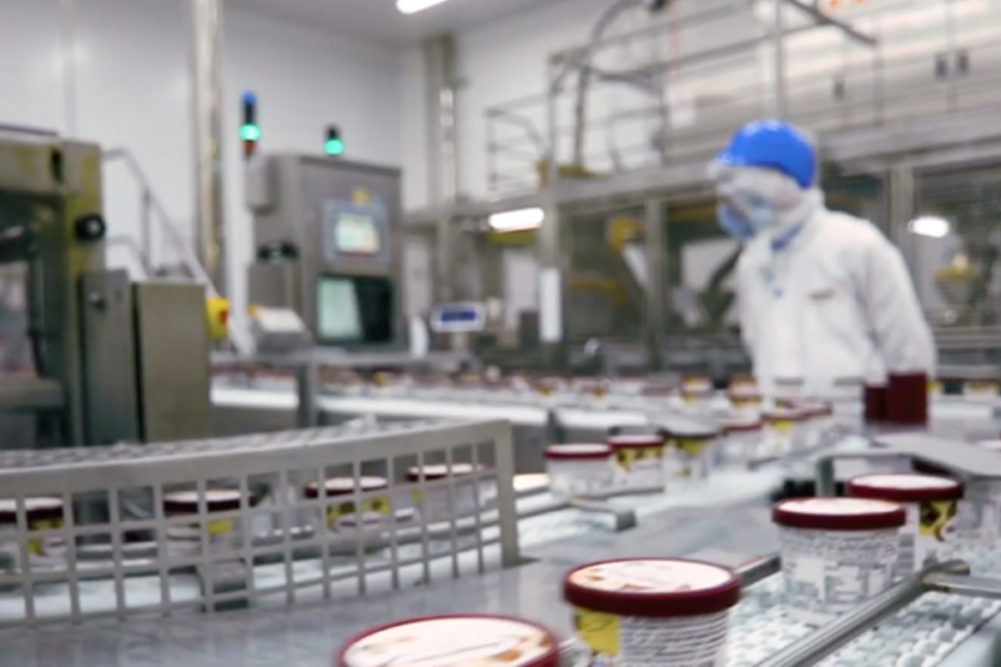MINNEAPOLIS — General Mills, Inc. always had regular supply chain meetings. They take place daily now that the coronavirus (COVID-19) pandemic has increased demand for the company’s products and at the same time has created issues in manufacturing those products, said John Church, chief supply chain officer, in an April 8 video created by Minneapolis-based General Mills.
“Quite honestly, that control tower of managing the different disruptions and inputs and outputs that they signal has moved to more 24/7 — navigating through that, understanding issues and challenges,” he said.
Factors like pack sizes and flavors are considered when deciding what products to manufacture.
“What we’ve tried to do is really focus on the ones that are most important and used most broadly through the different channels,” Mr. Church said. “It’s a balancing act of working with our customers and then trying to understand what are the things that we can make the most of in order to ensure that we can be as productive and make as much food as is possible during this time.”
Soup is one example. The company before COVID-19 could have as many as 90 stock-keeping units of soup at one time.
“We might be making half of those and then really giving our customers what we can afford to give them,” he said of the current situation.
Many people in General Mills’ supply chain team work remotely.
“So we’re leveraging video for things that historically would have taken place face-to-face,” Mr. Church said. “We’re leveraging technology in an interesting way. We may have an expert sitting in a plant in Missouri who’s assessing the technical challenge of an issue at a plant in France. They’re leveraging an iPad. They’re leveraging video technology in order to troubleshoot and work through those challenges.”
Soup and cereal are two of many products eaten at home that have increased in demand since the pandemic began.
“I’m really proud of the way the supply chain team has stepped up,” Mr. Church said. “We’ve seen incremental demand really across a broad variety of our businesses. The away-from-home business has moved toward at-home, which tends to lend itself to a broader set of our portfolio.”
The No.1 priority for General Mills remains keeping food safe and keeping company employees safe, Mr. Church said. Both the World Health Organization and the Centers for Disease Control and Prevention have approved of General Mills’ food operating practices, he said.
“The challenge for us has been around ensuring that we can navigate social distancing at our plants,” Mr. Church said.
“So that’s not only how we work and how we’re scheduling people, but it’s things like common areas.”
Extra cleaning and other sanitation practices are done in common areas.
“We’re doing creative things like leveraging conference rooms and even employees’ cars to give them space for private breaks so they’re not convening in areas where they might be closer than six feet apart,” Mr. Church said.
Team members essential for production are offered a daily attendance bonus. Employees will receive two weeks of paid leave under conditions that include voluntary or mandated quarantine, school closure for a child, medical risk and suspended work as a result of COVID-19.
“In addition to that, some folks, their real need is childcare and access to childcare,” Mr. Church said. “So we’re hooking them up with additional resources and trying to make that an easier thing for them to manage.”
General Mills told office employees who do not work in manufacturing plants that they could volunteer to do so. Seven hundred people have.
“The performance has been absolutely remarkable,” Mr. Church said of the company’s entire supply chain team. “People are very focused. They know how important it is to be making food for consumers in their time of need. Our brands bring a bit of normalcy and stability to our consumers. Our employees don’t take that lightly.”






